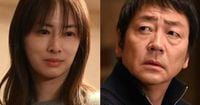Actor Ryuichi Oura, 56, is celebrating his 30th anniversary in the entertainment industry this year, a milestone that highlights his extensive career spanning over 150 roles in television, film, and theater. Oura first gained prominence with his debut in the 1994 Fuji TV drama 'Konoyo no Hate,' where he starred alongside Naomi Suzuki. As he continues to evolve in his craft, Oura is also making strides in education, working as a learning support assistant at a Tokyo elementary school two days a week.
Oura's journey into acting was influenced by his family background; his grandfather was the famous actor Hiroshi Takada, and his aunt is actress Miwa Takada. Despite this legacy, Oura was drawn not to the traditional period dramas of his youth but to trendy dramas, which sparked his passion for acting. "I always sought something unchanging," Oura reflects, emphasizing the emotional connection he strives for through his performances.
His breakout role in 'Konoyo no Hate' left a lasting impression, particularly as he played a character marked by a notable scar. Oura recalls, "If it weren't for 'Konoyo no Hate,' I wouldn't be who I am today." After initially dabbling in music, he decided to focus solely on acting in his late 20s, vowing to accept every job offer that came his way. This commitment has led to a prolific career, though he took a step back from acting offers for six years while raising his son as a single father following his divorce in 2007.
In recent years, Oura has taken on a variety of roles, often guest-starring in numerous series. He expresses gratitude for the diversity of characters he has portrayed, stating, "There are truly vast differences, from suspense to comedy, and I feel fortunate for that." His current role in the Fuji TV series 'Anata wo Ubaitai' marks another significant chapter in his career, airing every Monday at 10 PM.
Reflecting on his growth as an actor, Oura notes, "I've learned that good work emerges when everyone comes together as one," a realization that has shaped his approach to acting. He acknowledges that early in his career, he focused too much on his own visibility, often wanting to change lines to suit his style. Now, he strives to honor the writer's intent and the collaborative nature of acting.
Oura's decision to work in education stems from a desire to counterbalance the darker themes prevalent in contemporary media, particularly those aimed at children. He felt compelled to create more positive narratives and was encouraged by a friend in the education field to take on the role of a learning support assistant. His primary responsibility involves assisting children who struggle with their studies, allowing him to connect with students in a meaningful way.
In addition to his role as a learning support assistant, Oura has recently started working as a childcare supporter at another elementary school, where he supervises children during after-school activities. He emphasizes the importance of three principles in his interactions with children: listening, waiting, and not denying their feelings. "When you listen quietly and accept them without judgment, relationships begin to form, and they start to feel like friends," he explains.
Oura aims to convey messages of love and support to the children he works with, echoing the same values he sought in his acting career. He believes that being an actor is akin to being a good listener, and he strives to remain open and receptive, both in performance and in his educational role. "I want to be an actor who can listen well," he states, reinforcing his dedication to responding to the needs of those around him.
As he continues to balance his acting career with educational pursuits, Oura remains committed to fulfilling the roles he is given, stating, "I want to respond to what is required of me." His journey reflects a deep commitment not only to his craft but also to the development of the next generation, making him a multifaceted figure in both the entertainment and educational spheres.
In addition to Oura's story, the Fuji TV drama 'Anata wo Ubaitai,' starring Kyoko Kitagawa and Minami Takayama, continues to capture audience attention. The show, which airs every Monday at 10 PM, delves into complex themes of revenge and loss, as Kitagawa's character, Ayumi Nakae, grapples with the consequences of a tragic food accident that claimed her child's life. The emotional turmoil of the characters is palpable, making it a compelling watch.
As the series progresses, viewers can expect to see deeper layers of character development, particularly as Ayumi kidnaps the daughter of the store owner responsible for her child's death. This intense narrative is set against the backdrop of familial strife and societal expectations, making it relatable to many viewers. The second episode, airing on April 28, 2025, promises to further unravel the complexities of the characters' relationships and the moral dilemmas they face.
As both Oura and the cast of 'Anata wo Ubaitai' navigate their respective roles, the intersection of personal growth and storytelling remains at the forefront. Oura's dedication to acting and education exemplifies a commitment to fostering connections, whether on screen or in the classroom. As he continues to evolve in both realms, audiences can look forward to witnessing the impact of his experiences on his performances and interactions with the younger generation.




